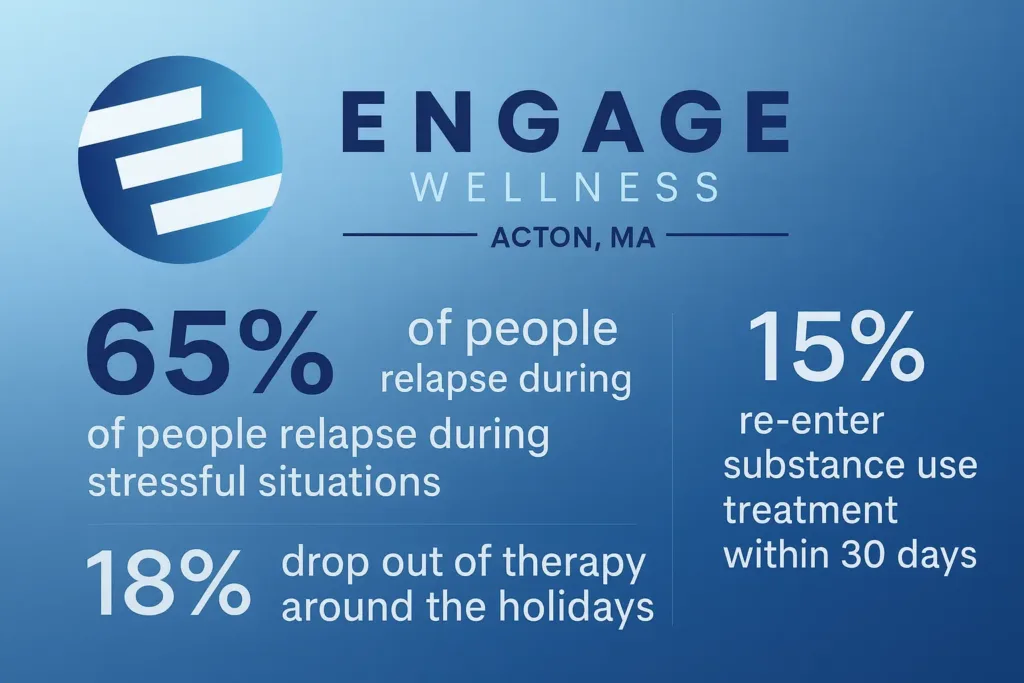IOP
Holding It Together Isn’t the Same as Healing: Why I Tried an Intensive Outpatient Program
Written By
Some people’s rock bottom is loud. Mine was quiet.
No DUIs. No job loss. No interventions. Just a growing sense that I was running on fumes—and if I stopped for even a second, it would all come crashing down.
I didn’t look like someone who needed help. But inside? I was worn out from hiding how much I was struggling. That’s what finally made me try something I never thought I would: an intensive outpatient program in Acton, MA.
This is what that looked like—and why I’d do it again in a heartbeat.
There’s this unspoken rule a lot of us live by: If you’re still standing, you must be fine.
I believed that for a long time. I told myself I wasn’t “bad enough” to need help. Other people had real problems—overdoses, rehab, visible crisis. I had a career, responsibilities, a calendar full of meetings. I held it together. That had to mean something.
But here’s the truth I didn’t want to admit: Holding it together isn’t the same as being okay. And it’s definitely not the same as healing.
I wasn’t failing. But I was tired—deeply tired. Tired of the pressure. Tired of pretending. Tired of coping without actually getting better.
And that’s what made me start looking at options.
If you’re high-functioning, you’re good at pretending. So good, sometimes even you forget how much you’re actually struggling.
My mask looked like this:
The longer I kept the mask on, the heavier it got.
Eventually, it wasn’t about “fixing” one issue anymore. It was about realizing I hadn’t felt safe—in my own mind, in my own body—for a long time. That’s when I called a center in Acton and asked about their IOP.
Signing up felt strange at first. I wasn’t used to asking for this kind of help. IOPs—intensive outpatient programs—always sounded like they were for people who were way worse off than me. That myth almost stopped me from reaching out.
But the program director didn’t ask me to prove how bad I was. She just listened.
She told me I didn’t need to wait for a breakdown to qualify for support. That IOP was built for people like me: people who are struggling quietly, who need structure and community, who want change but can’t blow up their entire life to get it.
That’s what finally made it feel like a fit.
Here’s what I got from those first few weeks:
I didn’t have to explain why I wasn’t falling apart. They understood that you can be deeply unwell and still look put-together. That’s what I needed—permission to be honest, without having to defend it.

One of the reasons I avoided treatment for so long was the fear of what I’d have to give up.
Could I keep working? Could I be there for my kids? Would I have to put everything on pause?
The answer, for me, was no. I didn’t have to disappear to get better. The intensive outpatient program at Engage Wellness offered flexible evening hours that worked with my schedule. Three evenings a week, I had a space to process, grow, and reset.
IOP let me build something better without destroying what I already had.
No big “aha” moment. No cinematic collapse and recovery.
Just this: I caught myself laughing at something real. I called a friend instead of drinking. I stopped clenching my jaw in the middle of the night.
Healing, for me, was subtle. But it was real.
It was in the shift from coping to actually living. From performing to being.
This is for you.
You don’t have to lose everything to start healing. You don’t have to explain your pain to justify asking for help.
You’re allowed to want more than just “functioning.”
An Intensive Outpatient Program (IOP) is a structured mental health or addiction treatment option that offers therapy, support groups, and skill-building multiple times per week—without requiring a residential stay. It’s ideal for people who need more than occasional therapy but still want to live at home and maintain work or family responsibilities.
IOP might be a good fit if:
You don’t need to be in crisis to benefit from IOP.
No—IOP can support mental health conditions like anxiety, depression, trauma, and burnout. At Engage Wellness in Acton, MA, our IOPs are designed for both substance use and mental health needs, depending on your situation.
Most IOPs meet 3–5 days per week for around 3 hours per session. Engage Wellness offers flexible scheduling options, including evening programs, to accommodate your life.
It’s a mix. Some are early in their recovery, some are managing mental health, and some—like me—look totally “fine” on the outside. The point isn’t comparison. It’s connection.
If any part of this sounds familiar—if you’re functioning but fraying—you’re not alone. And you don’t have to wait until things fall apart to ask for help.
📞 Call (978) 699-9786 or visit our IOP program page to learn more about how an intensive outpatient program in Acton, MA could fit into your life—exactly as it is.